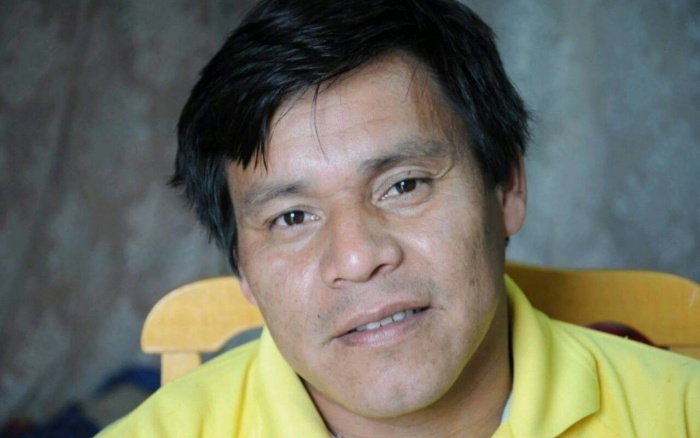2018 began with brutal news. In the early hours of the new year, Professor Marcondes Namblá, of the Xokleng people, was beaten to death in the town of Penha, Santa Catarina coast. After two days in hospital, he died from his injuries.
Professor Markondes who graduated from the Federal University of Santa Catarina (UFSC), lived in the Ibirama-La Klãnõ Indigenous Land, in the municipality of José Boiteux (SC). Nambla left wife and five children.
The police identified the killer as Gilmar César de Lima, 22 who was detained (4/1) after being identified by the State Civil Police. The killer had an open warrant for attempted murder in the city of Gaspar (SC) and had already been sent to jail. The criminal is still on the run
«We went into shock when we really understood what had happened, that he had been beaten in such a brutal way that he had a head injury,» recalls Ana Patté, a friend of Nambla and a resident of TI Ibirama-La Klãnõ. His family and friends were initially told that Marcondes had been run over. He had gone to Penha with 12 other members of the community to supplement their income by selling popsicles on the beach.
«The completion of the IT land redistribution programme Ibirama-La Klãnõ has been going through the courts for years. Meanwhile, the Xokleng experience innumerable attacks from other people in the area as well as general discrimination», emphasises Juliana de Paula Batista, lawyer of the ISA. Alto Itajaí Valley, where IT is located, is seen as a place of European colonisation, not as an «Indian place», recalls the lawyer. «There is great injustice against this people who have inhabited the region’s Atlantic Forest for centuries.»
«They took our lands, our stories, our food, our forests, and take our lives. We fight so that this does not go unpunished and that it does not occur with more indigenous people, not only in the south of the country, but in the whole of Brazil, «says Ana Patté.
She recalls recent cases of violence against indigenous people in the state of Santa Catarina, such as the murder of Vitor Kaingang, only two years old, beheaded in his mother’s lap in the city of Imbituba in December 2015, and the situation of increasing tension and threats experienced by the Guarani people of the Morro dos Cavalos Indigenous Land, in the municipality of Palhoça, in the metropolitan region of Florianópolis.
One of Marcondes’ main focuses as a teacher was the revitalisation of the language and culture of Xokleng La Klãnõ in the indigenous school of basic education. In addition, he held another important function as judge, one of the highest authorities within IT.
Another loss caused by the death of Marcondes Namblá. Makondes was that he and his cousin Grakan had developed a project to create an Academy of Letters of the Xokleng Language in order to expand the registers of the language, whose number of speakers has greatly decreased in the last twenty years. Grakan is a pioneer in the study of Xokleng language.
Since 1992, at the initiative of Grakan, language teaching has been incorporated into schools of IT Ibirama-La Klãnõ. He still does not know how he will continue to play the project without the help of his cousin, who had plans to take a master’s degree in linguistics and was already a leading scholar of the Xokleng language and culture.
«He was a great activist, a great fighter and friend of all. He was a friend for all hours, «recalls Ana Patté, who was also a colleague of Marcondes at UFSC.
